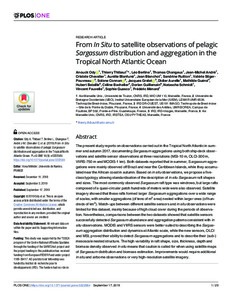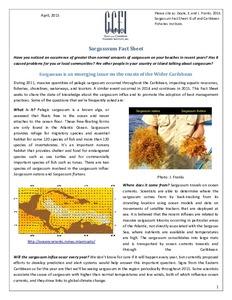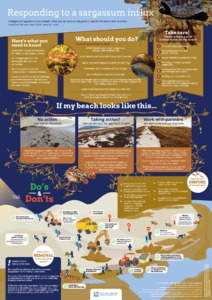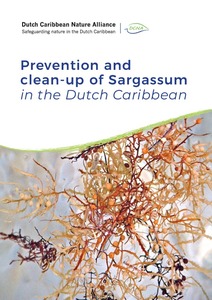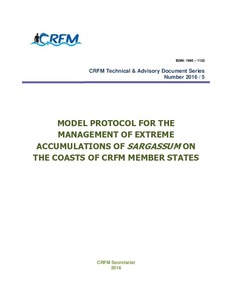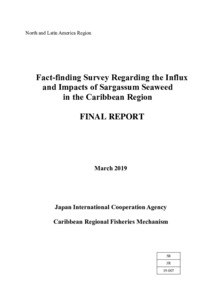Search
Now showing items 1-10 of 21
From In Situ to satellite observations of pelagic Sargassum distribution and aggregation in the Tropical North Atlantic Ocean.
(2019)
The present study reports on observations carried out in the Tropical North Atlantic in summer
and autumn 2017, documenting Sargassum aggregations using both ship-deck observations
and satellite sensor observations at ...
Golden Tides: Problem or Golden Opportunity? The Valorisation of Sargassum from Beach Inundations.
(2016)
In recent years there have been massive inundations of pelagic Sargassum, known as golden
tides, on the beaches of the Caribbean, Gulf of Mexico, andWest Africa, causing considerable damage
to the local economy and ...
Sargassum Fact Sheet.
(Gulf and Caribbean Fisheries Institute., Marathon, FL, 2015)
During 2011, massive quantities of pelagic sargassum occurred throughout the Caribbean, impacting aquatic resources,
fisheries, shorelines, waterways, and tourism. A similar event occurred in 2014 and continues in 2015. ...
Best Practices for Determining Volumetric Data of Fresh Sargassum Wracks.
(Texas A&M University Galveston Campus (TAMUG), Galvaston, TX, 2015)
The purpose of this procedure is to identify the best practices for measuring and quantifying the size of Sargassum wracks, or piles of beached “seaweed” as it is often referred to, found along the coastlines surrounding ...
Responding to a sargassum influx. [poster]
(Gulf and Caribbean Fisheries Institute., Marathon, FL, 2018)
If sargassum appears on your beach, what you do next can be good or bad for the beach and business. Important lessons have been learned.
Prevention and clean-up of Sargassum in the Dutch Caribbean.
(Dutch Caribbean Nature Alliance, Bonaire, Dutch Caribbean, 2019)
In 2011, the shores of several Caribbean islands and West African countries were inundated by unprecedented
quantities of pelagic sargassum. Since then, influxes of this golden-brown seaweed have become
a recurrent event ...
Strategic Sargassum Preparedness Plan.
(Fisheries Division, Ministry of Agriculture, Food and Fisheries,Commonwealth of Dominic, Commonwealth of Dominica, 2019)
The objective of the Sargassum Preparedness Plan is to address the impacts of sargassum while capitalizing from its opportunities. To thoroughly understand the current research on sargassum and how the influxes ...
Slow Pyrolysis as a Method for the Destruction of Japanese Wireweed, Sargassum muticum.
(2015)
Japanese wireweed, Sargassum muticum is an invasive species to Great Britain, which might be controlled by harvesting it for energy and chemicals. Pyrolysis is the thermal decomposition of the organic components of dry ...
Model Protocol for the Management of Extreme Accumulations of Sargassum on the Coasts of CRFM Member States.
(Caribbean Regional Fisheries Mechanism, Belize, 2016)
The 26th Meeting of the CRFM Executive Committee noted the protocol developed for the
management of extreme accumulations of Sargassum in Puerto Rico and considered the efficacy
of such a protocol being considered for ...
Fact-finding Survey Regarding the Influx and Impacts of Sargassum Seaweed in the Caribbean Region: final report.
(Caribbean Regional Fisheries Mechanism and Japan International Cooperation Agency, Belize, 2019)
The Caribbean region has suffered a sudden increase in the influx of Sargassum seaweed since 2011, and
several countries in the region have requested support to the Government of Japan and the Japan
International Cooperation ...
 Repository of community practices in Ocean Research, Applications and Data/Information Management
Repository of community practices in Ocean Research, Applications and Data/Information Management
